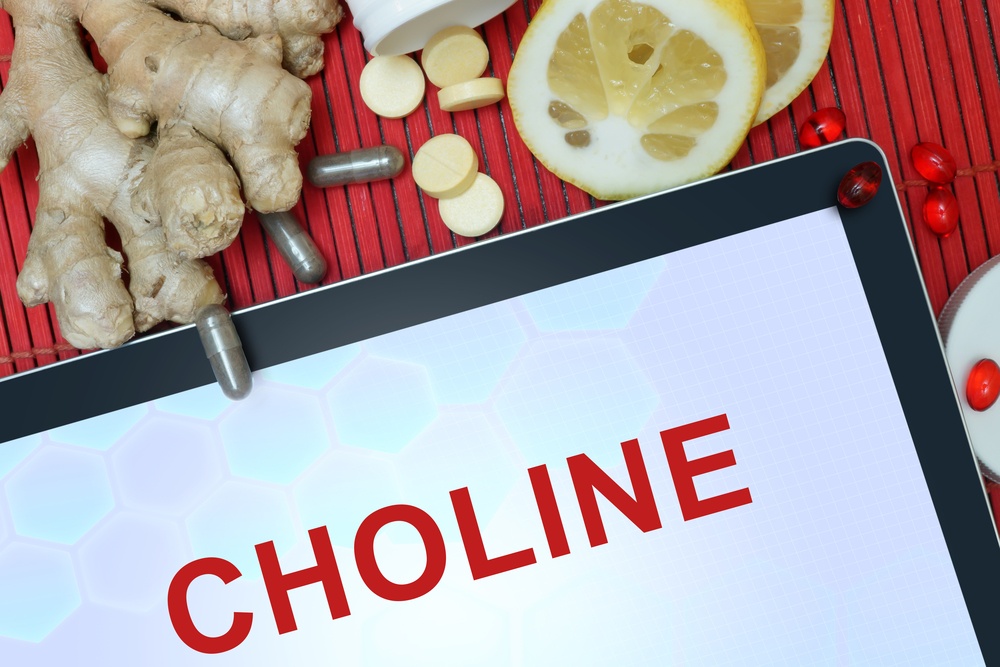 Natural health advocates have praised this nutrition for a long time, but it has fallen on the deaf ears of traditional medical practitioners.
Natural health advocates have praised this nutrition for a long time, but it has fallen on the deaf ears of traditional medical practitioners.
But doctors are probably going to wake up soon, as a new study published in the journal Molecular Psychiatry revealed the amazing benefits of this nutrition for Alzheimer’s and other types of dementia.
Not only will it help those who take it, it will also benefit generations down the road.
Choline is a substance that resembles a vitamin. It is water soluble and, while your liver produces it in small amounts, you consume most of it through your diet. That is why it is called an essential nutrient.
Researchers have known for some time that high homocysteine levels in your body can contribute to Alzheimer’s disease. It has also been scientifically established that choline can reduce your homocysteine levels.
This made scientists wonder whether choline supplementation could be used to combat Alzheimer’s disease.
To investigate this, they bred mice to show symptoms of Alzheimer’s, after of which they put them on a regime of choline supplementation.
They then encouraged these mice to breed with each other, producing the first generation of new mice. The new mice did not receive any choline supplements aside from that which they received through their mothers’ intake inside the womb and during lactation.
Still, their brains displayed certain characteristics that make Alzheimer’s unlikely.
The researchers then encouraged them to breed with each other, thereby creating a second generation who never received any form of choline supplementation, not even through their mothers’ diets in the womb.
Surprisingly, even this generation enjoyed the structural brain benefits that reduced the risk of Alzheimer’s.
The researchers concluded that their mothers’ and grandmothers’ intake of choline supplements made the necessary modifications to their genes.
Choline makes two important changes.
Firstly, as mentioned earlier, homocysteine is an amino acid that causes Alzheimer’s-related changes in our brains, such as the formation of amyloid plaques. Choline reduces our homocysteine levels and thus prevents these brain changes.
Secondly, Alzheimer’s sufferers have overactive microglia, which are cells that clean up dead cells and other waste products from our brains. When these become overactive, they cause inflammation and the death of neurons in our brains.
Choline can reduce the overactivity of these microglia and can thus prevent the brain damage that they might cause.
According to the National Health and Nutrition Examination Survey statistics that was released by the U.S. Department of Agriculture and the U.S. Department of Health and Human Services, the choline intake of Americans is far below the recommended daily intake, but due to the fact that choline deficiency does not have any immediate symptoms in the short term, it is generally not recognized as a problem.
If you would rather obtain it from food than from supplements, then you have lots of options.
You can find Choline in liver, eggs, milk, beef, chicken, salmon, shrimp, soybeans, tofu, other beans, wheat germ, spinach, cauliflower, broccoli, almonds, peanuts, and sunflower seeds.
So, it is ideal that healthy varied diet should include enough Choline.

 Overcoming IBD
Overcoming IBD Multiple Sclerosis
Multiple Sclerosis Banishing Bronchitis
Banishing Bronchitis Gum Disease Gone
Gum Disease Gone Overcoming Onychomycosis
Overcoming Onychomycosis Neuropathy No More
Neuropathy No More The Prostate Protocol
The Prostate Protocol Brain Booster
Brain Booster
 Ironbound
Ironbound
 Solution for Shingles
Solution for Shingles
 The Bone Density Solution
The Bone Density Solution
 The Ultimate Healing Protocol
The Ultimate Healing Protocol
 The Parkinson's Protocol
The Parkinson's Protocol
 The Chronic Kidney Disease Solution
The Chronic Kidney Disease Solution
 Overthrowing Anxiety
Overthrowing Anxiety The Fatty Liver Solution
The Fatty Liver Solution The Hypothyroidism Solution
The Hypothyroidism Solution
 The End of Gout
The End of Gout The Blood Pressure Program
The Blood Pressure Program
 The Oxigized Cholesterol Strategy
The Oxigized Cholesterol Strategy
 Stop Snoring And Sleep Apnea Program
Stop Snoring And Sleep Apnea Program
 The Arthritis Strategy
The Arthritis Strategy The Vertigo & Dizziness Program
The Vertigo & Dizziness Program The 3-Step Diabetes Strategy
The 3-Step Diabetes Strategy Hemorrhoids Healing Protocol
Hemorrhoids Healing Protocol The Erectile Dysfunction Master
The Erectile Dysfunction Master Weight Loss Breeze
Weight Loss Breeze The IBS Program
The IBS Program The Insomnia Program
The Insomnia Program The Migraine and Headache Program
The Migraine and Headache Program The Neck Pain Solution
The Neck Pain Solution The Menopause Solution
The Menopause Solution The Ejaculation Master
The Ejaculation Master The TMJ Solution
The TMJ Solution The Acid Reflux Solution
The Acid Reflux Solution The Fibromyalgia Solution
The Fibromyalgia Solution The Psoriasis Strategy
The Psoriasis Strategy